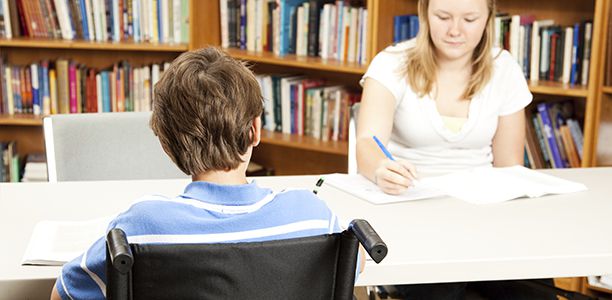The inclusion of students with disabilities into regular school programs was the topic of discussion at the recent Monash University Dean’s Lecture Series.
The lecture, Are we preparing teachers for inclusion or exclusion? Were presented by Associate Professor Umesh Sharma, the co-ordinator of Special Education Programs at Monash University’s Faculty of Education.
Associate Professor Sharma says a significant shift needs to occur in teacher education if we wish to address the issue of inclusive education.
“Inclusive education needs to form the foundation of teacher education programs. If we continue to see inclusive education as an additional element to our programs, then our graduates will continue to leave unprepared and inadequately trained for the classroom,” Associate Professor Sharma said.
“We need our teachers to have the head, heart and hands of an inclusive teacher, that means understanding the philosophy behind inclusion, believing that all students belong in their classroom and be able to include and teach all students irrespective of difference in their abilities.”
With education ministers from 92 countries showing their commitment to implementing an inclusive education by signing the UNESCO Salamanca Statement, progress in low-income countries still remains limited.
Only a 1-5% of disabled children from low-income countries receive an inclusive education, according to various estimates of 150 million children. High-income counties continue to make progress in placing students with disabilities into regular schools, but the rate of high quality education remains hotly debated.
The lecture will discuss the barriers that continue to hinder teacher education and the effect on a child or teacher when inclusion doesn’t occur, and look at whether we are preparing teachers for inclusion or exclusion.
Associate Professor Sharma said students with a wide range of disabilities are now attending regular schools, when in the past they went to special schools.
“Teachers now need to have a new set of skills that allow them to teach all students. The most critical question now is are universities preparing teaching for these new roles?” he said.
(Source: Monash University)










